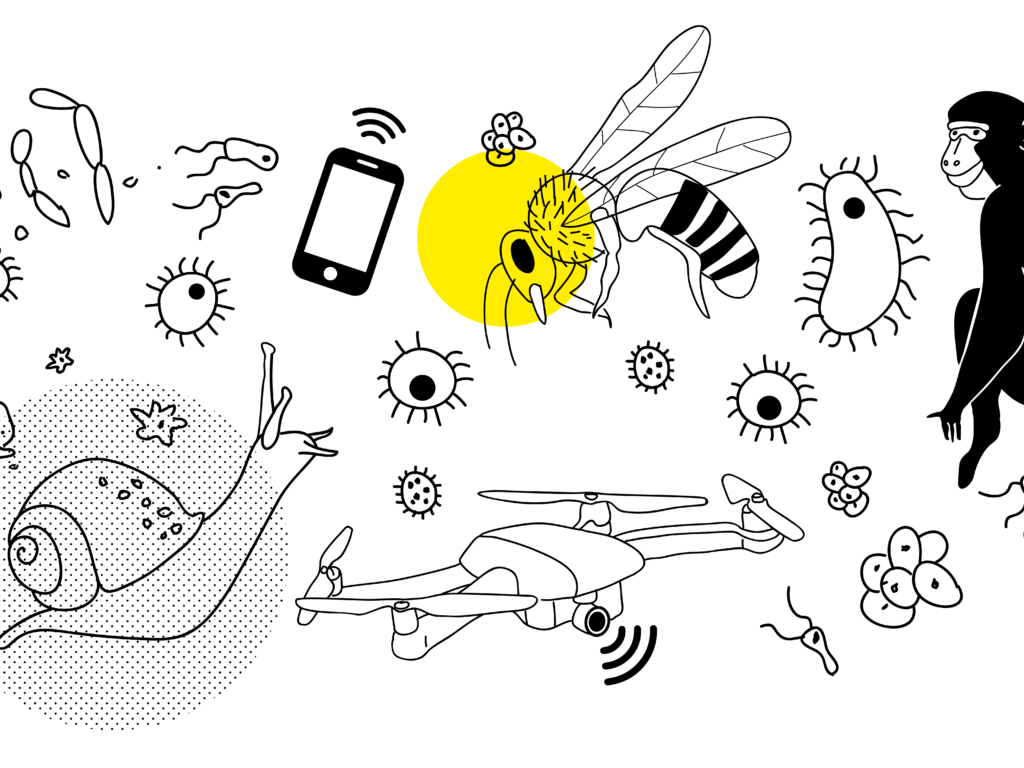
More than a dialogue – fabulations about non-humans, material and uncertain futures.
Human-centered design has been providing designers and researchers with many useful, advanced approaches and methods to get into dialogue with human participants in order to answer their needs and co-formulate questions of preferred futures. However, the human-centredness can be seen as problematic since it puts the human at the focal point which leads to an Anthropocentric and resource-heavy approach that can be seen as one of the driving forces of the multiple crises we live in. Recently, the design discipline has shifted its focus towards a more holistic perspective in which humans are actants of a complex network of entangled things and other beings. This shift needs a different mindset to understand the existing interdependence and relationalities. The Tuesday talk will address how we can design tools, methods, and spaces through which dialogue can flourish between human and non-human entities. How can this dialogue give rise to new ways of coping with crisis? How can we design “shared, playful spaces of interspecies co-becoming and care” (Noorani & Brigstocke, 2018, p.19) for creating a transformative impact? How do/does our future world/s unfold when seeing materials not as mere resources but as “vibrant” (Bennet, 2009) and common matters that intra-act (Barred, 2007) with all of us?
Jennifer Schubert is a researcher and lecturer at Free University of Bolzano in the area of Social Interaction Design. In 2018 she obtained her Ph.D. (Dr. phil.) at the Berlin University of the Arts (UdK), Design Research Lab founded by Gesche Joost. In her practice-based dissertation about “Civic Tools for Informal City Making” she explored new possibilities of visual and tangible forms of participation. Since 2011 she worked on bottom-up as well as municipal research projects, in rural and urban spaces, locally based with a global perspective. She studied Design Strategy, Service Design, Design Concepts at KISD (Cologne) and Parsons (New York). She has been teaching Design Research modules in Dessau (MA of Integrated Design), Wuppertal (MA for Strategic Product & Innovation Development) and Cologne (BA/MAIntegrated Design).
Seçil Uğur Yavuz is an associate professor at the Faculty of Design and Art, Free University of Bozen-Bolzano. She got her BA in Industrial Product Design, at Istanbul Technical University in 2005, and her MA in Product-Service-System Design, at Politecnico di Milano in 2007. In 2012, she got her Phd in Design, at Politecnico di Milano with a practice-based design research on wearable technology, during which she worked as a visiting researcher at TU/e (Eindhoven University of Technology- Designing Quality in Interaction Group), in Wearable Senses Lab. She teaches in the Eco-Social Design and Design for Children Master programmes. Her research lies in-between analog and digital making to give rise to new modalities of interaction, ways of alternative production and new types of hybrid materials. She works with soft materials, such as e-textiles, smart fabrics, grown materials and applies these materials in different contexts, ranging from products to wearables to explore new ways of tangible, embedded and embodied interactions.
Kris Krois is heading the transdisciplinary Master in Eco-Social Design at the Free University of Bozen/Bolzano. Together with students and teachers as well as with partners from design, art, science, activism and entrepreneurship, he is co-developing design practices, tools and structures that contribute to socio-ecological transformations towards more solidary, resilient and sustainable modes of living and production. Since 2013 he is organising the annual conference By Design or by Disaster. Blog: designdisaster.unibz.it. He is a founding member of the research cluster tans–form, of the Zukunftspakt–Patto per il Futuro, of lab:bz, and of Scientists for Future South Tyrol. He is engaged in diverse transformation-oriented arenas, always trying to draw things, ideas and actors together for unfolding positive societal changes.
The talk will be hosted via Zoom:
https://tinyurl.com/2p8nva46
Meeting-ID: 848 6011 7795
Passcode: KISD